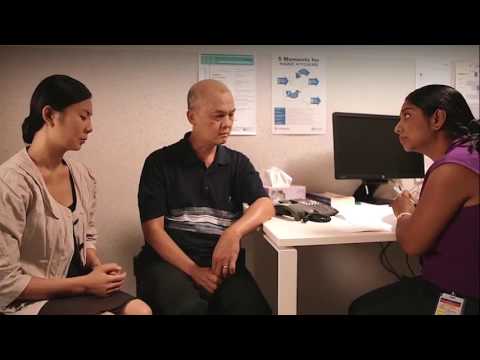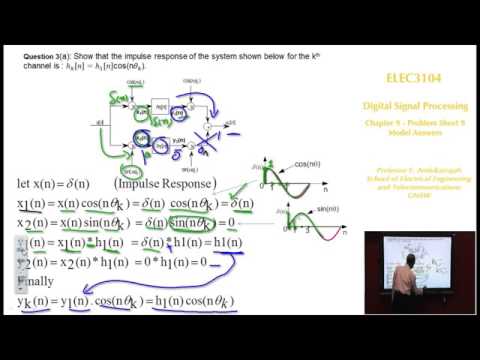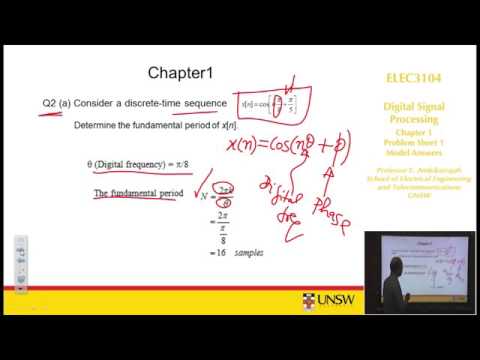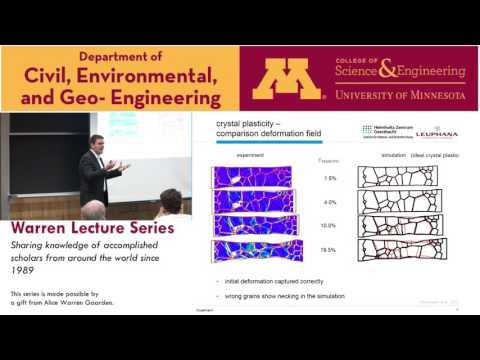 12:49 webquit video 8b
12:49 webquit video 8b 4:29 webquit video 5
4:29 webquit video 5 12:28 webquit video 3B
12:28 webquit video 3B 19:47 webquit video 8a
19:47 webquit video 8a 12:27 webquit video 4
12:27 webquit video 4 5:57 webquit video 6
5:57 webquit video 6 11:10 webquit video 3A
11:10 webquit video 3A 6:06 webquit video 1
6:06 webquit video 1 3:07 Accessing Your Marks and Feedback in Turnitin Video Transcript
3:07 Accessing Your Marks and Feedback in Turnitin Video TranscriptThis video will explain where to locate marks and feedback on your Turnitin Assignments.
This information is accessed through the submission box where you initially uploaded your w...
 12:16 Lecture 2 Part 3
12:16 Lecture 2 Part 3 12:08 Lecture 2 Part 2
12:08 Lecture 2 Part 2 3:32 Scene 6. Rejecting treatment Part II
3:32 Scene 6. Rejecting treatment Part II 1:20 Scene 5. Rejecting treatment Part 1
1:20 Scene 5. Rejecting treatment Part 1 2:30 Scene 4. Concealing information Part II
2:30 Scene 4. Concealing information Part II 1:36 Scene 2. Daughter misinterpreting
1:36 Scene 2. Daughter misinterpreting 1:04 Scene 3. Concealing information Part I
1:04 Scene 3. Concealing information Part I 4:33 Scene 1. Resistance to interpreter
4:33 Scene 1. Resistance to interpreter 34:53 Digital Signal Processing - Problem Sheet 9 Model Answers - Prof E. Ambikairajah Digital Signal Processing - Problem Sheet 9 Model Answers - Electronic Whiteboard-Based Lecture - the Problem Sheet pdf file is available on http://eemedia.ee.unsw.edu.au/contents/ELEC3104/LectureN...
34:53 Digital Signal Processing - Problem Sheet 9 Model Answers - Prof E. Ambikairajah Digital Signal Processing - Problem Sheet 9 Model Answers - Electronic Whiteboard-Based Lecture - the Problem Sheet pdf file is available on http://eemedia.ee.unsw.edu.au/contents/ELEC3104/LectureN... 31:18 Digital Signal Processing - Problem Sheet 8 Model Answers - Prof E. Ambikairajah Digital Signal Processing - Problem Sheet 8 Model Answers - Electronic Whiteboard-Based Lecture - the Problem Sheet pdf file is available on http://eemedia.ee.unsw.edu.au/contents/ELEC3104/LectureN...
31:18 Digital Signal Processing - Problem Sheet 8 Model Answers - Prof E. Ambikairajah Digital Signal Processing - Problem Sheet 8 Model Answers - Electronic Whiteboard-Based Lecture - the Problem Sheet pdf file is available on http://eemedia.ee.unsw.edu.au/contents/ELEC3104/LectureN... 30:03 Digital Signal Processing - Problem Sheet 7 Model Answers - Prof E. Ambikairajah Digital Signal Processing - Problem Sheet 7 Model Answers - Electronic Whiteboard-Based Lecture - the Problem Sheet pdf file is available on http://eemedia.ee.unsw.edu.au/contents/ELEC3104/LectureN...
30:03 Digital Signal Processing - Problem Sheet 7 Model Answers - Prof E. Ambikairajah Digital Signal Processing - Problem Sheet 7 Model Answers - Electronic Whiteboard-Based Lecture - the Problem Sheet pdf file is available on http://eemedia.ee.unsw.edu.au/contents/ELEC3104/LectureN... 54:11 Digital Signal Processing - Problem Sheet 5 Model Answers - Prof E. Ambikairajah Digital Signal Processing - Problem Sheet 5 Model Answers - Electronic Whiteboard-Based Lecture - the Problem Sheet pdf file is available on http://eemedia.ee.unsw.edu.au/contents/ELEC3104/LectureN...
54:11 Digital Signal Processing - Problem Sheet 5 Model Answers - Prof E. Ambikairajah Digital Signal Processing - Problem Sheet 5 Model Answers - Electronic Whiteboard-Based Lecture - the Problem Sheet pdf file is available on http://eemedia.ee.unsw.edu.au/contents/ELEC3104/LectureN... 19:26 Digital Signal Processing - Problem Sheet 4 Model Answers - Prof E. Ambikairajah Digital Signal Processing - Problem Sheet 4 Model Answers - Electronic Whiteboard-Based Lecture - the Problem Sheet pdf file is available on http://eemedia.ee.unsw.edu.au/contents/ELEC3104/LectureN...
19:26 Digital Signal Processing - Problem Sheet 4 Model Answers - Prof E. Ambikairajah Digital Signal Processing - Problem Sheet 4 Model Answers - Electronic Whiteboard-Based Lecture - the Problem Sheet pdf file is available on http://eemedia.ee.unsw.edu.au/contents/ELEC3104/LectureN... 37:48 Digital Signal Processing - Problem Sheet 3 Model Answers - Prof E. Ambikairajah Digital Signal Processing - Problem Sheet 3 Model Answers - Electronic Whiteboard-Based Lecture - the Problem Sheet pdf file is available on http://eemedia.ee.unsw.edu.au/contents/ELEC3104/LectureN...
37:48 Digital Signal Processing - Problem Sheet 3 Model Answers - Prof E. Ambikairajah Digital Signal Processing - Problem Sheet 3 Model Answers - Electronic Whiteboard-Based Lecture - the Problem Sheet pdf file is available on http://eemedia.ee.unsw.edu.au/contents/ELEC3104/LectureN... 29:16 Digital Signal Processing - Problem Sheet 2 Model Answers - Prof E. Ambikairajah Digital Signal Processing - Problem Sheet 2 Model Answers - Electronic Whiteboard-Based Lecture - the Problem Sheet pdf file is available on http://eemedia.ee.unsw.edu.au/contents/ELEC3104/LectureN...
29:16 Digital Signal Processing - Problem Sheet 2 Model Answers - Prof E. Ambikairajah Digital Signal Processing - Problem Sheet 2 Model Answers - Electronic Whiteboard-Based Lecture - the Problem Sheet pdf file is available on http://eemedia.ee.unsw.edu.au/contents/ELEC3104/LectureN... 12:23 Digital Signal Processing - Problem Sheet 1 Model Answers - Prof E. Ambikairajah Digital Signal Processing - Problem Sheet 1 Model Answers - Electronic Whiteboard-Based Lecture - the Problem Sheet pdf file is available on http://eemedia.ee.unsw.edu.au/contents/ELEC3104/LectureN...
12:23 Digital Signal Processing - Problem Sheet 1 Model Answers - Prof E. Ambikairajah Digital Signal Processing - Problem Sheet 1 Model Answers - Electronic Whiteboard-Based Lecture - the Problem Sheet pdf file is available on http://eemedia.ee.unsw.edu.au/contents/ELEC3104/LectureN... 1:17:23 Speaker Verification - The present and future of voiceprint based security APSIPA Distinguished Lecturer Programs. Presented by Professor Eliathamby Ambikairajah, Head of School of Electrical Engineering & Telecommunications, UNSW Sydney, Australia
1:17:23 Speaker Verification - The present and future of voiceprint based security APSIPA Distinguished Lecturer Programs. Presented by Professor Eliathamby Ambikairajah, Head of School of Electrical Engineering & Telecommunications, UNSW Sydney, Australia 1:33:54 FE Basics
1:33:54 FE Basics 1:11:23 Buckling and Nonlinear Analysis
1:11:23 Buckling and Nonlinear Analysis 1:28:03 Good FE Practice
1:28:03 Good FE Practice



















